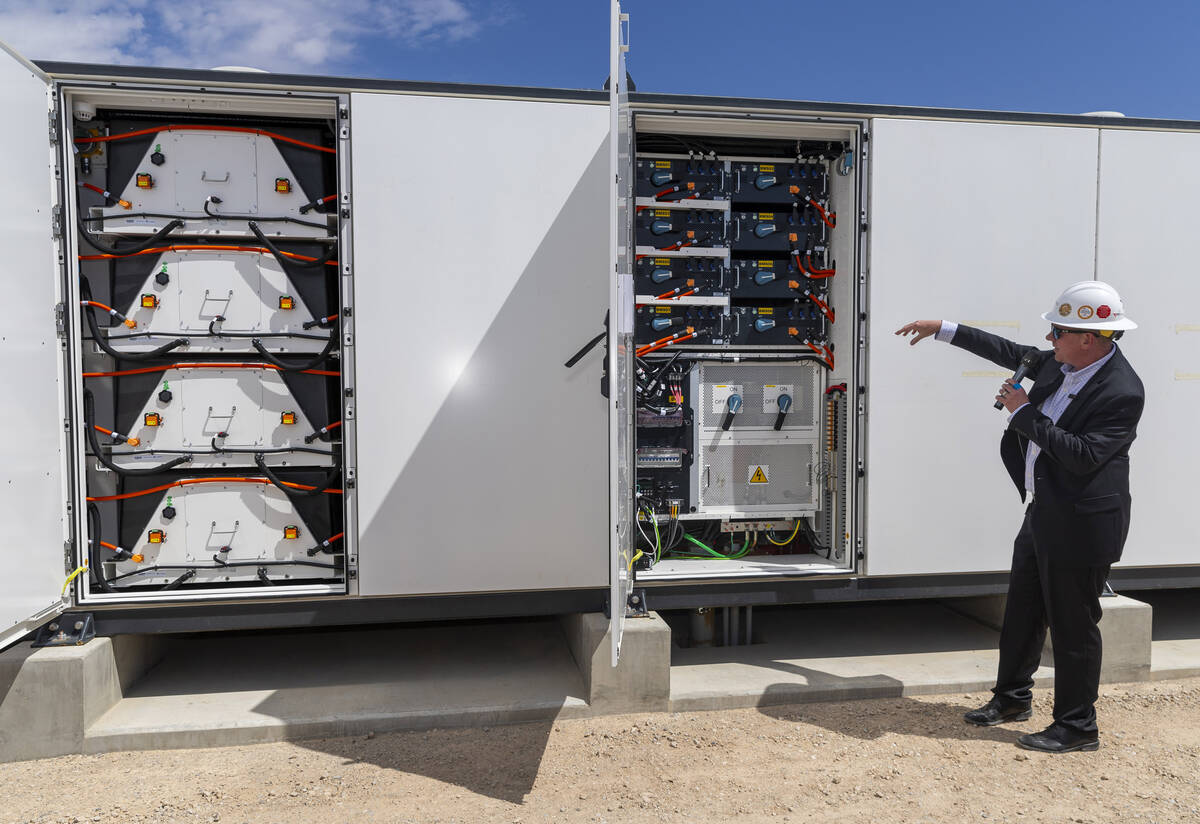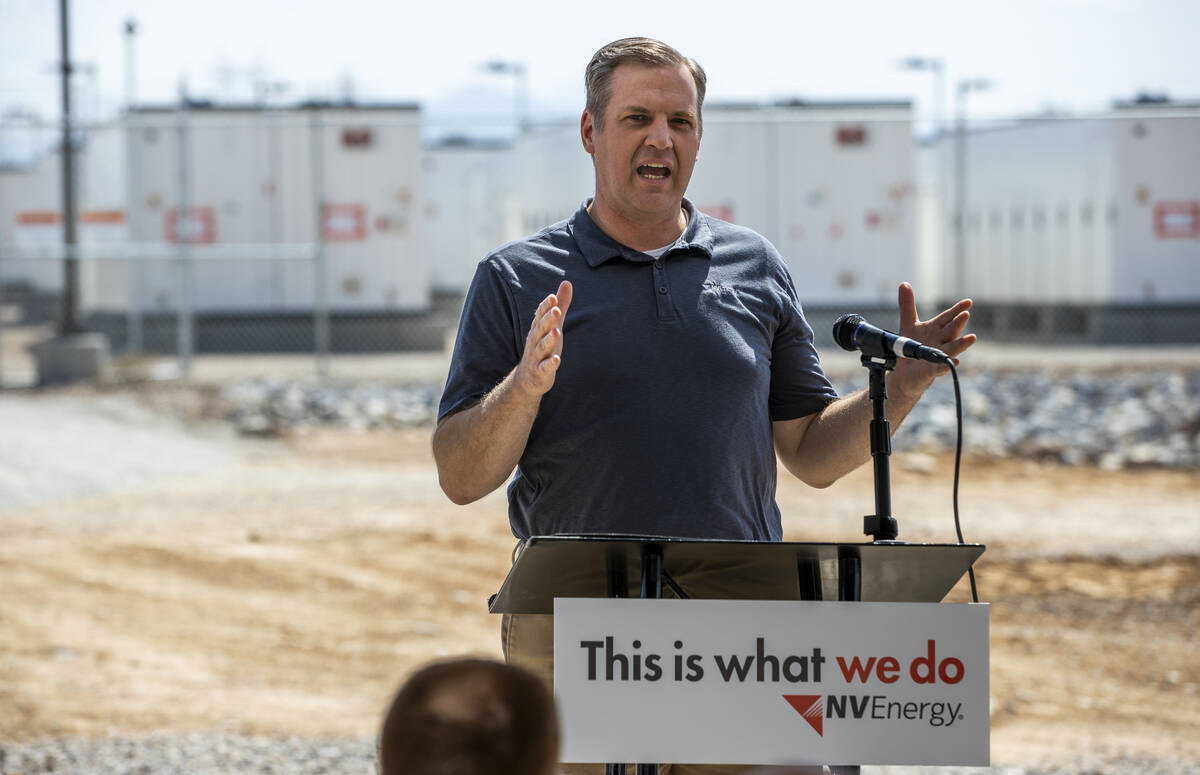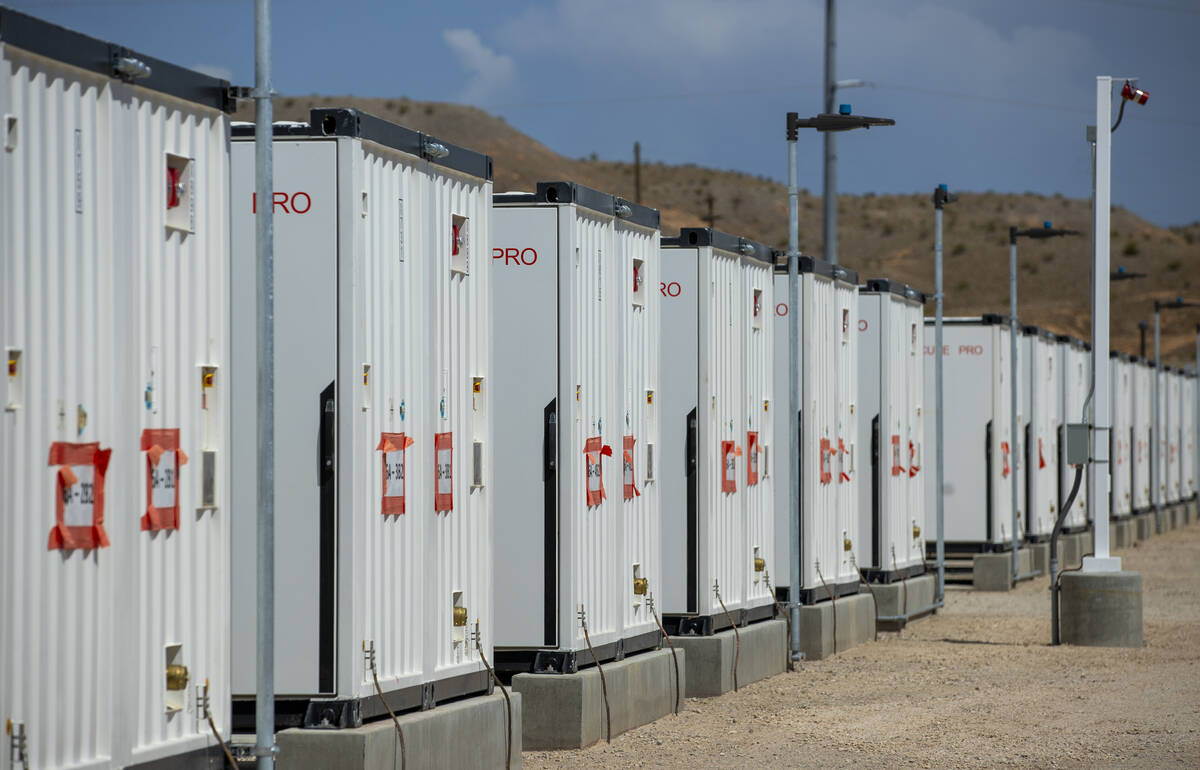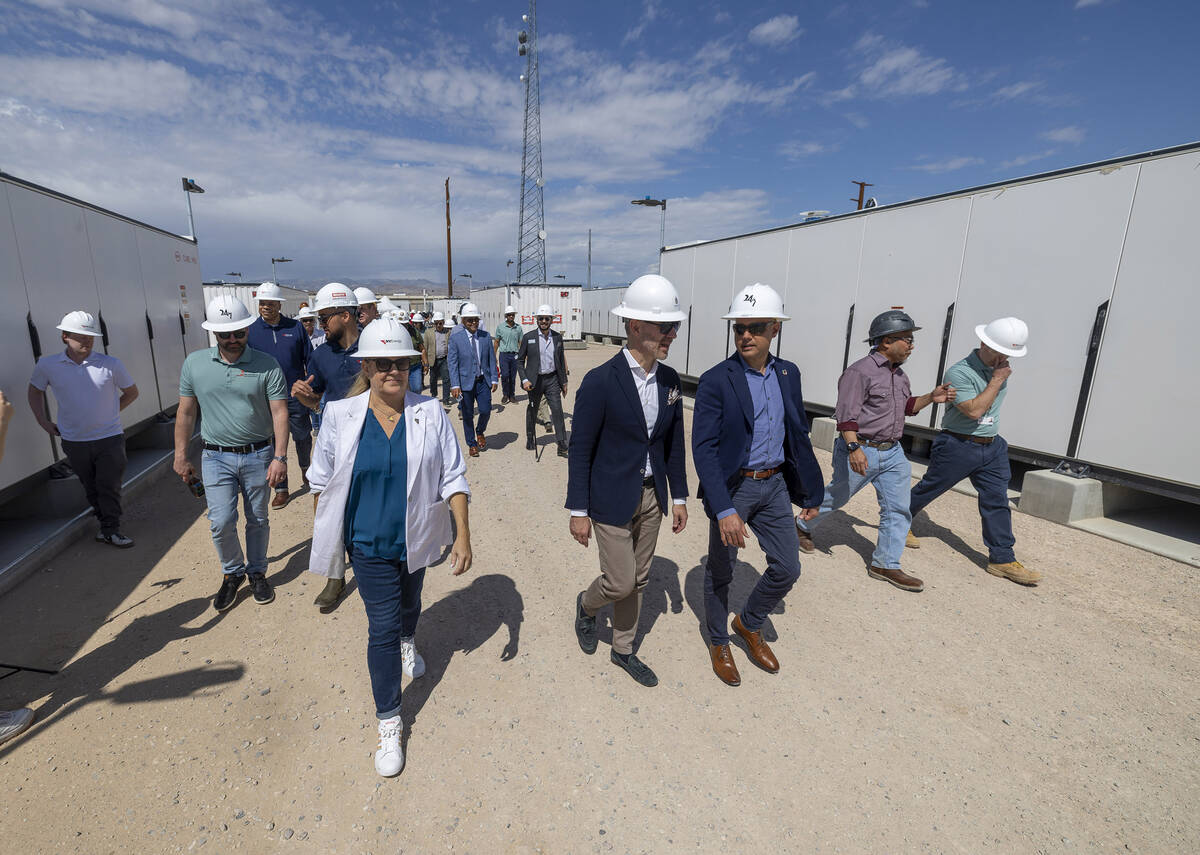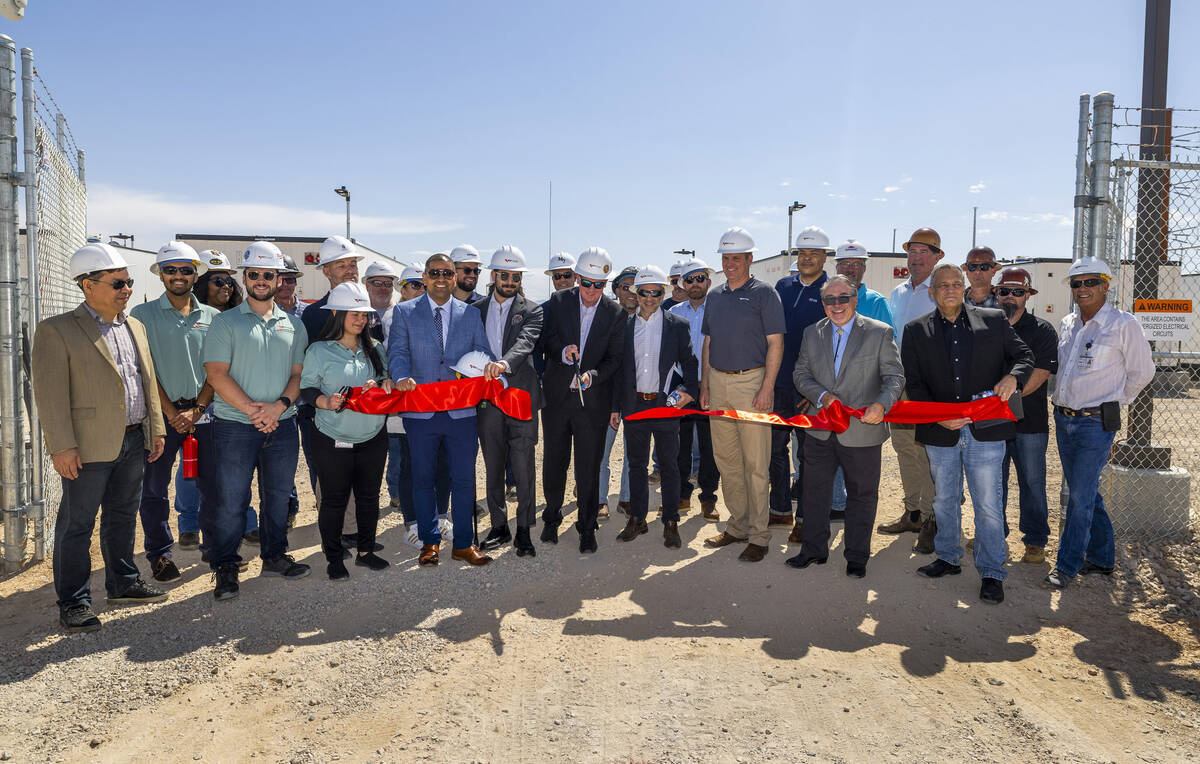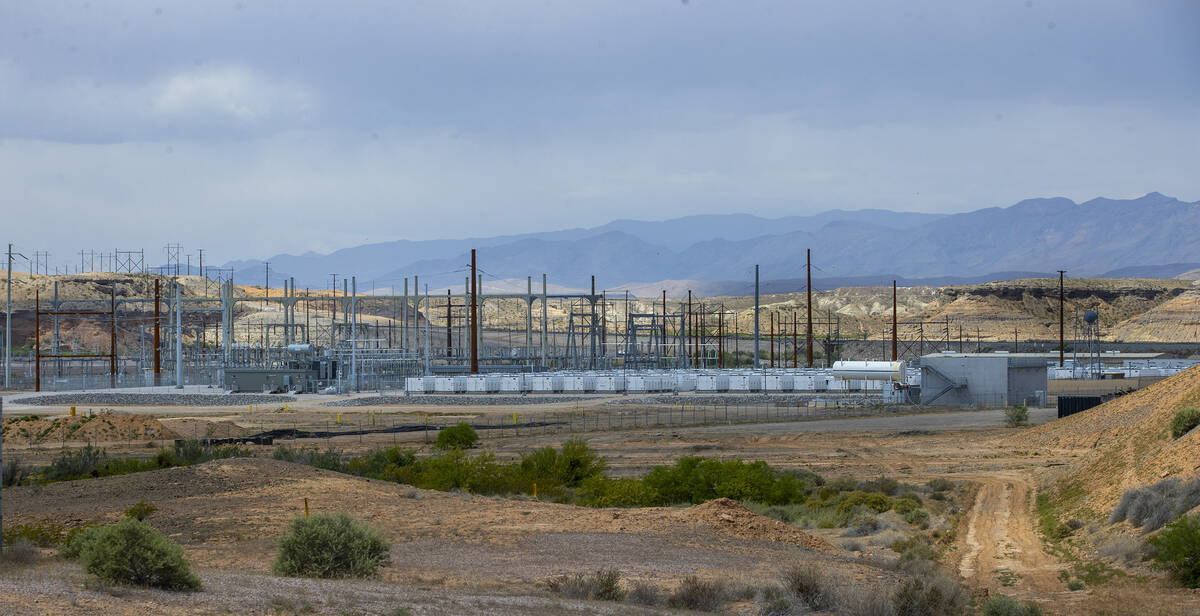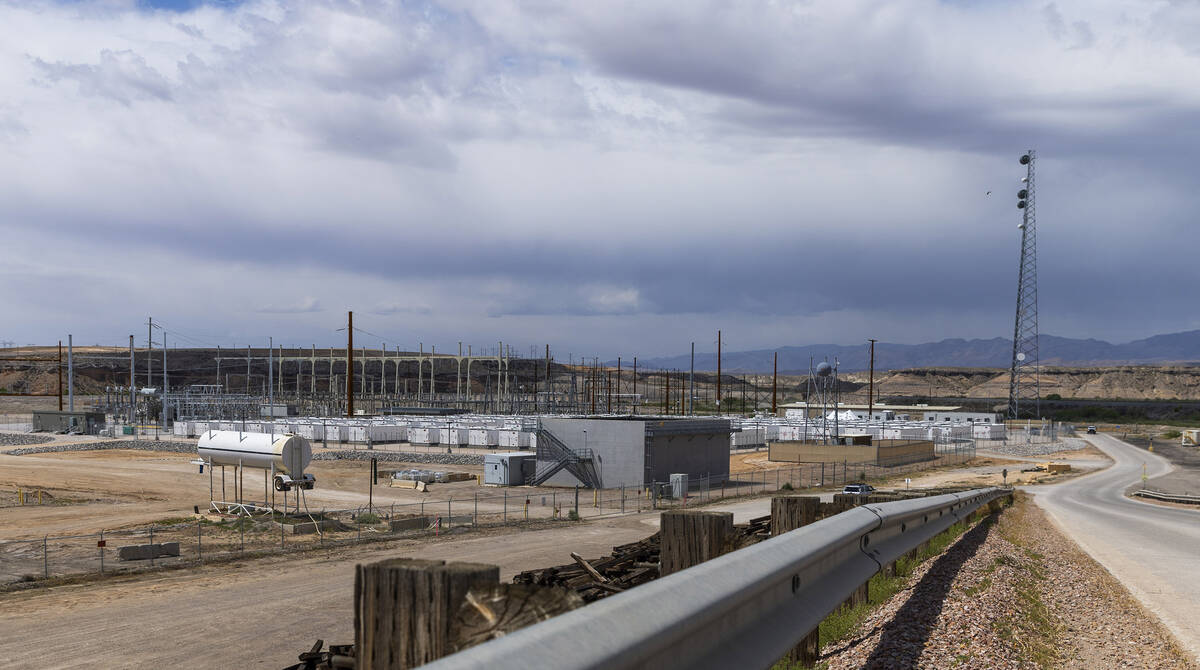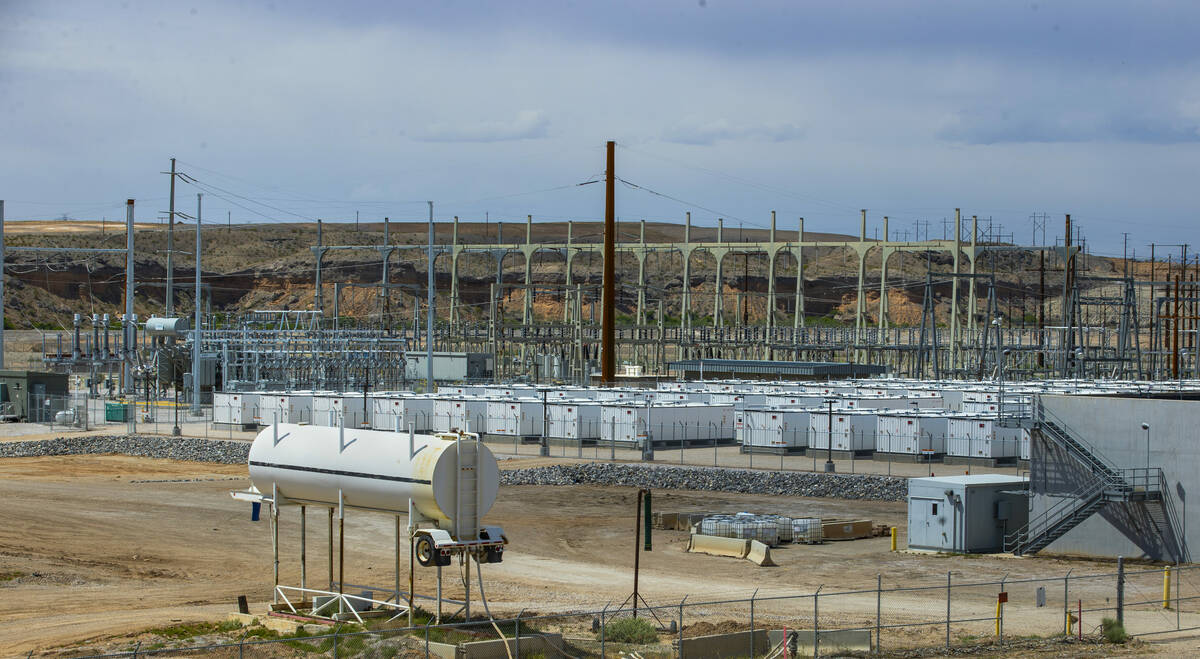‘Critically important’: New Nevada facility aims to boost solar energy
In the Nevada desert about an hour away from Las Vegas, there are 208 large batteries that can bring solar energy to the night.
The batteries are located at the Reid Gardner Battery Energy Storage System on the site of a former coal plant operated by NV Energy. On Thursday, NV Energy held a ribbon-cutting ceremony for the facility near Moapa, which has been in operation since December.
The batteries store excess energy produced by solar panels and save that power for nighttime usage when people return home from their day, said Doug Cannon, CEO of NV Energy.
“What this solar (storage) project allows us to do is capture that solar energy during the day, when we have plenty of it, and shift the use of that to those 5 to 9 p.m. hours to ensure that we’ve got enough energy so it becomes critically important to meeting those peak energy load times,” Cannon said.
The Reid Gardner battery facility can store about 220 megawatts of energy, a NV Energy news release said. One megawatt provides enough energy for roughly 750 homes at once, according to the California Independent System Operator, which monitors California’s electrical grid. That means these batteries can store enough energy to power about 165,000 homes.
Impact on summer bills
This type of battery project can also reduce customers’ bills during times of high usage because it boosts NV Energy’s supply of energy and reduces the amount the utility needs to buy on the open market. Cannon estimated that energy stored at this facility is about 60 percent cheaper than energy bought on the open market.
This can be significant going into the summer months when NV Energy sees demand for power double compared with the winter months. For this summer NV Energy expects it will have to buy about 15 to 20 percent of its energy from the open market, Cannon said.
NV Energy feels good about its resources heading into the summer though weather projections show there will be “slightly above normal temperatures,” Cannon said. He said he doesn’t expect NV Energy will have to call for energy conservation unless there is a heat wave across all of the Western states.
Battery costs
The Reid-Gardner battery facility cost about $257 million to develop but about 40 percent, or roughly $100 million, of that is covered by tax credits made available by the Inflation Reduction Act, an NV Energy spokesperson said.
More energy storage facilities like this could come online in Nevada as NV Energy still needs more renewable energy to meet its goal of hitting 50 percent renewable energy by 2030. NV Energy said in a recent news release that its current level of renewable energy is 39.7 percent.
The details of what other renewable energy projects NV Energy will pursue will be known this year after the utility files a resource plan application with the Public Utilities Commission.
Cannon said that the resource application should include more energy storage, solar and geothermal projects to accommodate a growing demand for energy in Nevada as more commercial operations come to the state.
“We continue to see fairly significant energy growth in the state of Nevada, a lot of interest around manufacturing and a lot of interest around data centers,” he said. “We certainly want to make sure that we keep Nevada open for business.”
Contact Sean Hemmersmeier at shemmersmeier@reviewjournal.com. Follow @seanhemmers34 on X.



